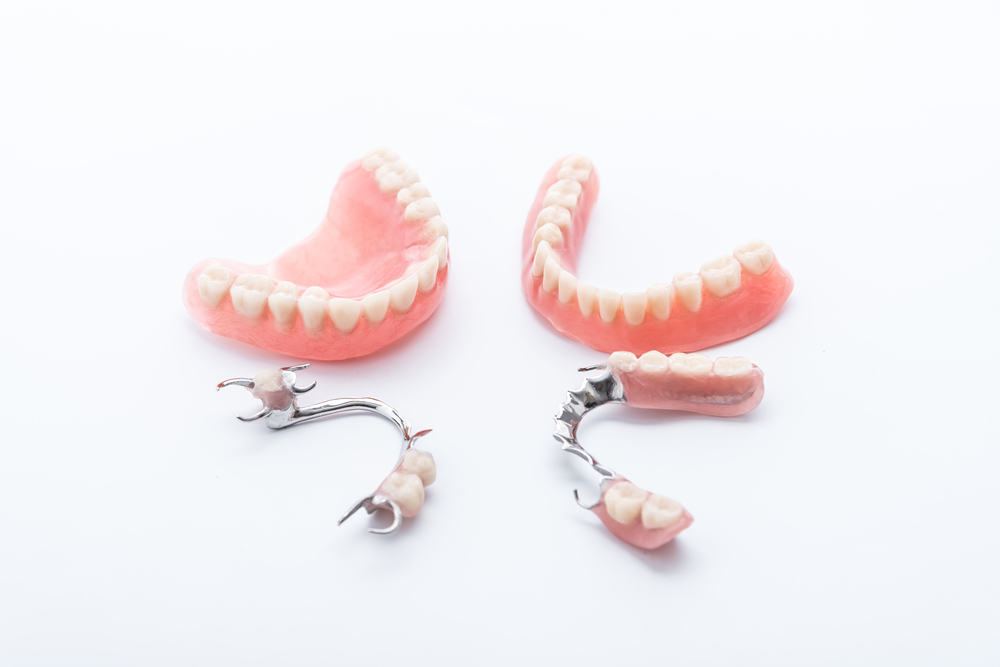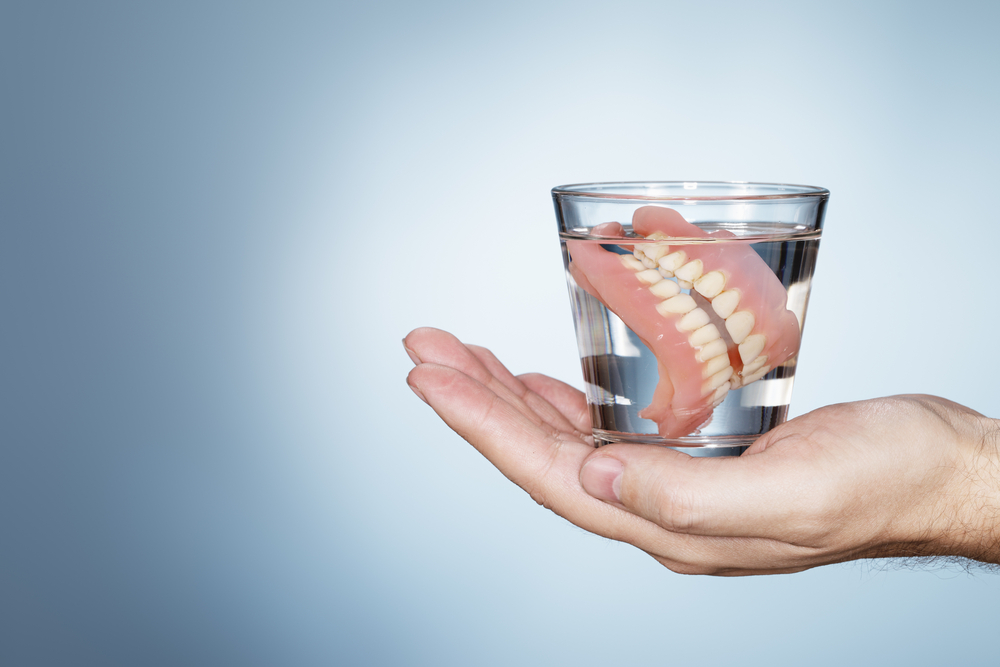Things you show know when using dentures
Dentures are a very familiar dental term. Nowadays, a lot of people receive dentures due to many problems including tooth decay, lack of teeth, dropped out teeth, or tooth loss in an accident. Nonetheless, not many people understand tooth implantation properly and little do they know of denture aftercare.
What are dentures?
Dentures, or a set of dentures, are artificial teeth and gums attached to your mouth to replace damaged or missing teeth. Dentures can substitute a part or the whole set of original teeth. Your dentist will design your denture set according to your oral structure regardless of which type of dentures you choose, helping to boost your confidence whenever you smile.
Dentures were made of porcelain or plastic in the past. However, today’s dentures are usually made of hard resin. The materials used to make dentures are easier to break than natural teeth and prone to chips and cracks when they fall down or are not taken care of. These also become worn out over a shorter time, which means you need to get new dentures every 5 years.
Types of dentures

1. Partial dentures
Partial dentures are usually recommended when the natural teeth adjacent to the dentures are not strong enough to support a dental structure such as crowns. You may also want to get dentures when you’ve lost multiple teeth (more than two).
Your dentist will attach a denture that fits your gum lines and healthy surrounding teeth to hold them securely in place. Nonetheless, you can still detach your denture easily before sleep or for cleaning.
2. Full dentures
Full dentures are recommended when there is a complete loss of teeth due to injuries, infections, periodontitis, or other medical conditions. Artificial teeth will be bound to a base layer that resembles the real gum lines, and hence, other people wouldn’t be able to tell the difference. Your dentist will use an adhesive to keep your denture in the right place.
3. Removable dentures
These are a kind of traditional dentures. If you receive removable dentures, you can clean them more easily. However, removable dentures can slide out of place easily. That is why dentists recommend avoiding foods that are excessively chewy, sticky, or hard.
Although a denture adhesive can hold them in place, it can be difficult to use. You need to get a new removable denture after 5 years. The cost of removable dentures depends upon the materials used, the number of artificial teeth needed, and other factors.
4. Flexible dentures
Flexible dentures are an alternative option for traditional dentures. These are made of flexible yet extremely durable materials, allowing you to feel more comfortable when wearing them. Flexible dentures also weigh less and feel more invisible in your mouth. This type of dentures can last from 5 to 8 years.
How to take care of dentures?

- Clean your denture at least twice a day
- Even though these are fake teeth, you still have to keep them clean like what you’d normally do with your original teeth. If you adopt the habit of cleaning your dentures at least twice a day, your risk of getting oral infections and gingivitis will be reduced.
- Also, you need to clean your denture properly. Firstly, use a denture cleaning paste to clean and remove any plaque or food particles on your denture. Then soak them in a denture cleaner. Don’t use hot water for this step as it can deform your denture. Finally, take out your denture and clean them once again.
- You need to brush your dentures really gently to avoid causing dents yet thoroughly enough to remove all the food debris caught on them.
Choose the right denture care products
You need to use the right denture cleaners for the type of dentures you have. For dentures with a soft base, choose cleaners that don’t have any chemicals that can harm it. Typically people with sensitive teeth and gums will go with soft-base dentures. Consult your doctor if you encounter any difficulty finding a suitable denture cleaner.
Moreover, you should not use any teeth brightening products or mouthwashes for your denture. These products will weaken your denture, making it prone to damage and look less natural.
Lifestyle changes can help keep stains off your dentures
- Avoid consuming too many caffeinated drinks (such as coffee and tea) after getting dentures to prevent denture staining. If you notice significant discoloration of your denture, see your dentist for treatment.
- In addition, remove your denture before sleep to avoid gum inflammation and yeast infection. Soak your denture in a suitable denture cleaner to prevent them from warping or cracking.
- You should continue the habit of going to your dentist for oral checkups after getting your denture. Your dentist will check to see if your denture has any damage or problem in order to deal with them as soon as possible. Seeing your dentist frequently also helps you prevent and treat oral disease timely.
The disadvantages of dentures
On your first time getting a denture, especially a temporary denture, you may experience increased saliva. This is totally normal and your saliva production will reduce eventually once your mouth has adjusted to the new teeth. Some people also experience temporary nausea.
As you may have trouble eating at first. Thus, try to eat only soft or liquid foods for your mouth to make adjustments during this time. Similarly, you may experience speech difficulties with the new dentures. Therefore, try to practice pronunciation to adjust to the changes.
Dentures can sometimes cause oral irritation or sores. These are quite common and usually go away on their own after some time. Rinsing your mouth with salt water and maintaining good oral hygiene can help you manage these symptoms.
Your denture can fall out with heavy coughing or sneezing. To prevent this, cover your mouth with your hand when you sneeze, yawn, or cough.
The following signs can indicate that your denture needs readjusting or repairing:
- Cracks on your denture
- Trouble chewing after the adjustment process (which may take about a week)
- Removable dentures are sliding or falling out more often. Although this is quite normal after a few years of use, readjustment is needed
- Pressure sores from where the denture is placed
- A foul odor coming from your denture
Learn more: Finding the truth: Are dental crowns actually harmful?
Services
Working Time
- Monday - Friday: 08:00 - 19:00
- Saturday: 08:00 - 18:00
- Sunday closed
Contact Info
- Hotline 1: (+84) 908 321 455
- Hotline 2: (+84) 931 857 885
- Mobile: (+84) 8 3925 8778
- Phone: (+84)2 838 258 778
- info@dentalrose.net
- rosedentalclinicvn@gmail.com
 English
English  Tiếng Việt
Tiếng Việt

